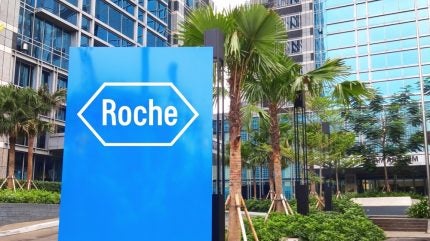
Roche has presented more data from a Phase II study of its Bruton’s tyrosine kinase (BTK) inhibitor after long-term data found near complete disease-suppression in relapsing multiple sclerosis (RMS) patients.
The company has released 48-week data for fenebrutinib from the FENopta open-label extension (OLE) study (NCT05119569). The OLE followed a 12-week, double-blind Phase II trial.

Discover B2B Marketing That Performs
Combine business intelligence and editorial excellence to reach engaged professionals across 36 leading media platforms.
This update comes just days after Sanofi shared mixed results from its BTK inhibitor, tolebrutinib, with the HERCULES trial meeting its primary endpoint while the two GEMINI trials did not.
In Roche’s study, 96% of patients treated with fenebrutinib were free of relapses at one year, with an annualised relapse rate (ARR) of 0.04, and no change in disability over 48 weeks as measured by the Expanded Disability Status Scale (EDSS).
Fenebrutinib also suppressed disease activity in the brain, with 99% of patients free of T1 gadolinium-enhancing (T1-Gd+) lesions, markers of active inflammation after 48 weeks.
In the same period, there was a three-times greater reduction in the volume of T2 lesions, which represent chronic disease burden, compared to the end of the double-blind period.

US Tariffs are shifting - will you react or anticipate?
Don’t let policy changes catch you off guard. Stay proactive with real-time data and expert analysis.
By GlobalDataThe safety profile of fenebrutinib in the OLE was consistent with previously reported data. Serious adverse events occurred in one patient (1%) and treatment was discontinued.
Roche’s chief medical officer Dr Levi Garraway said: “If these results are validated in the ongoing Phase III trials, fenebrutinib could further advance the treatment landscape for people living with multiple sclerosis.’’
Roche has three ongoing Phase III trials, notably the FENhance 1 (NCT04586010) and FENhance 2 FENhance 2 (NCT04586023) trials in RMS, as well as the FENtrepid trial (NCT04544449) in primary progressive multiple sclerosis (PPMS). Data from these studies is expected by the end of next year.
In December 2023 the FDA put fenebrutinib’s MS programme under partial clinical hold after detecting several cases of liver injury. As a result of the clinical hold, new enrolment in the Phase III studies in the US was halted, with any patients who had not been on fenebrutinib for 70 days or more stopping treatment. The clinical hold has not impacted enrolment in any other countries.
Fenebrutinib blocks the function of BTK, an enzyme that regulates B-cell development and activation and is also involved in the activation of innate immune system myeloid lineage cells, such as macrophages and microglia.
The candidate is a dual inhibitor of both B-cell and microglia activation. This dual inhibition may be able to reduce both multiple sclerosis disease activity and disability progression, potentially addressing the key unmet medical need for MS patients.
The current standard of care for an MS relapse involves either a five-day course of steroid tablets taken at home or steroid injections administered in hospital for three to five days.
GlobalData predicts global sales of fenebrutinib to reach $810m in 2030.
GlobalData is the parent company of Clinical Trials Arena.





